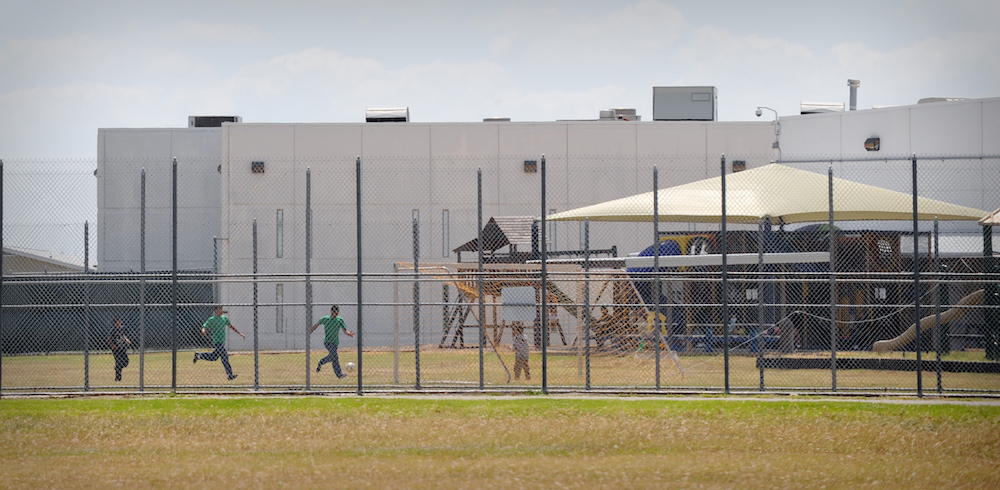A campaign by faith-based investors and investment networks, spearheaded by a New York congregation of women religious, led the nation's largest consumer bank to announce it intended to stop investing in private prison firms.
Starting with an October 2017 letter, the effort resulted in JPMorgan Chase announcing March 5 that it would cease financing two of the leading private prison corporations, Geo Group Inc. and CoreCivic.
The corporations' role in the detention of immigrants in facilities along the U.S.-Mexico border, pose a concern for people such as Sister Pat Mahoney, a member of the Sisters of St. Joseph of Brentwood, New York, whose signature was at the bottom of the letter.
"We're thrilled," Sister Mahoney told Catholic News Service a day after the bank's announcement. "It's a step and it gives you a sense of momentum too. If you can work with (Chase CEO) Jamie Dimon, maybe you can work with other places that need to take a careful look at where they're going."
Sister Mahoney's letter included the names of dozens of religious congregations, investment groups and regional shareholder networks concerned about the bank's investment practices.
They raised questions about human rights abuses in the companies' prisons that were uncovered by investigations and identified in lawsuits. They also cited "inmate deaths, poor medical care, allegations of physical and sexual abuse of detainees, and violence" as reason for concern.
A wide network of organizations not affiliated with the investors also have been pressuring Chase to stop financing the companies.
Mary Beth Gallagher, executive director of the Tri-State Coalition for Responsible Investment in Montclair, New Jersey, helped pull together the group that supported the letter and offered technical advice to the congregation. Gallagher and others also worked with Chase executives to make clear how providing financial capital "to those companies was facilitating detention and more human rights abuses."
"It's a really important and positive step," she said of Chase's announcement. "We welcome it and it's what we've been encouraging them to do."
Geo Group and CoreCivic disagreed with Chase's decision, saying the charges against them were "politically motivated."
In statements emailed to CNS, the companies offered similar reactions. Both said the bank's decision was based on false information and they denied holding children who are not under parental supervision.
Both corporations said their work is helping solve the challenges stemming from the arrival of thousands of people at the U.S. border with Mexico.
Geo Group added that it would "welcome the opportunity to have an open dialogue with all financial institutions to address the common mischaracterizations of our company's role and record as a government services provider."
Chase declined additional comment beyond its original two-sentence statement announcing that "we will no longer bank the private prison industry."
As campaigns go, the effort initiated with Chase by the Sisters of St. Joseph was short. More often, engagements by faith-based shareholders with company executives can take years to realize even incremental progress toward a specific goal meant to change corporate practices.
Sister Mahoney said the letter emerged from her congregation's long-term commitment to minister to immigrants on Long Island. As she and other sisters continued to hear reports of unsatisfactory conditions in the detention centers at the border, she felt her congregation could join with other investors to make a difference.
"We (as a congregation) are at the stage of our life that we've come to appreciate that we have a voice with our (stock) portfolios," Sister Mahoney explained. "This is one way we can keep Gospel and mission out front."

